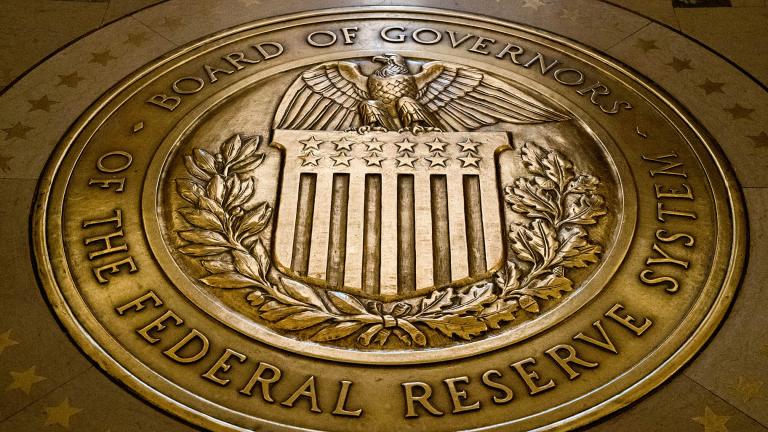Video: What’s driving stock market volatility? A “Chicago Tonight” discussion with guests Rendel Solomon and Susan Schmidt. (Produced by Paul Caine)
NEW YORK (AP) — Big technology stocks tumbled again on Tuesday, continuing the Icarus-like flight path for companies that just a week ago were the high-flyers carrying Wall Street to record heights.
The S&P 500 fell 95.12, or 2.8%, to 3,331.84 and clinched its first three-day losing streak in nearly three months. Big names that were the main reasons for the market’s rocket ride back from its pandemic-caused losses were among the heaviest weights. Apple sank 6.7%, Microsoft pulled 5.4% lower and tech stocks across the index were down 4.6%.
The Dow Jones Industrial Average lost 632.42 points, or 2.2%, to 27,500.89. The Nasdaq composite, which is packed with tech stocks, dropped 465.44, or 4.1%, to 10,847.69 and is down 10% since it set its latest record on Wednesday.
Tech stocks had been the darlings of Wall Street on expectations that they can continue to deliver strong profit growth almost regardless of the economy and global health. Tech stocks in the S&P 500 are still up nearly 23% for 2020 so far, and Amazon has rocketed 70.5%, even when unemployment remains high and much of the economy is limping ahead.
Analysts say a flurry of activity for stock options of Big Tech companies goosed the gains even further recently. With certain kinds of options, investors can make huge profits on a stock, without having to pay for its full share price, as long as the stock’s price keeps rising. If enough of these kinds of stock options are getting sold, it can create a buying frenzy for the stock that accelerates the gains even more.
But all that activity can unwind quickly and send prices tumbling if momentum turns, which is what happened last week. Apple stock dropped 3.1% for just its second weekly loss in the last 14 weeks. It’s lost 14.1% over the last three days.
Critics have long been saying that big technology stocks had shot too high, even after accounting for their strong profit growth. Such high-growth stocks have been trouncing the performance of stocks that look like better bargains, which are called “value stocks” by investors, by margins wide enough to raise eyebrows along Wall Street.
“The growth versus value outperformance was at an unheard of extreme at the end of August,” said Sam Stovall, chief investment strategist at CFRA.
That gap began to narrow on Thursday, when tech stocks began cracking and the Dow fell more than 800 points, and that “showed investors that tech stocks and growth stocks can fall just as easily as they rise,” Stovall said.
“It’s a reminder that we’re still in 2020,” said Willie Delwiche, investment strategist at Baird. “The degree of selling we’ve seen the past few days is just a reminder that volatility is still around.”
 The Charging Bull statue is shown in New York’s financial district, Tuesday, Sept. 8, 2020. More sharp declines for big tech stocks are dragging Wall Street toward a third straight loss on Tuesday. (AP Photo / Mark Lennihan)
The Charging Bull statue is shown in New York’s financial district, Tuesday, Sept. 8, 2020. More sharp declines for big tech stocks are dragging Wall Street toward a third straight loss on Tuesday. (AP Photo / Mark Lennihan)
The trigger for last week’s turnaround may have been expectations that longer-term interest rates will rise, according to strategists at Morgan Stanley. Low rates often act like steroids for stocks, encouraging investors to pay higher prices for stocks relative to corporate profits, which can benefit high-growth stocks in particular.
The yield on the 10-year Treasury fell to 0.67% from 0.72% late Friday. But it’s notably higher than the 0.53% it was offering at the end of July.
Tesla has been one of the brightest examples of Big Tech’s wild movements, and it surged 74.1% in August alone. It slumped 21.1% Tuesday, its worst loss since it began trading a decade ago, amid disappointment that it won’t be joining the S&P 500 anytime soon.
The company behind the S&P 500 announced the inclusion of several companies in the benchmark index, including Etsy. Some investors thought Tesla would be among them, which can create huge bouts of buying as index funds automatically fold the stock into their portfolios.
The big question for the stock market is whether the losses can stay mostly confined to the tech area, which had been soaring so quickly earlier and looked to be the most expensive part of the market.
“How resilient can the stocks beneath the surface be?” said Delwiche. “If they hold up, that would fit with a healthy correction,” which is what traders call a drop of 10% for the market and can mark a short-term breather for stocks in the midst of an upward run.
“If they don’t, then it could be something more significant.”
Beyond the tech stock slump, other worries are also hanging over the stock market, which had been setting record highs just last week.
Pessimism is rising that Democrats and Republicans in Washington will be able to find a deal to send more aid to unemployed workers and an economy still struggling amid the pandemic. Investors have been largely assuming that a deal would eventually pass, but recent talks between government leaders have yielded no progress.
Video: Part two of our conversation with Rendel Solomon and Susan Schmidt on “Chicago Tonight.” (Produced by Paul Caine)
President Donald Trump is also talking about “decoupling” the U.S. economy from China, as the presidential campaign heats up. The relationship between the world’s two largest economies has been on edge for years, and all the uncertainty threatens to exacerbate the global economy’s already shaky standing.
Energy stocks had some of Wall Street’s sharpest drops as the price of oil tumbled. Apache lost 10.7%, and Diamondback Energy fell 10% after benchmark U.S. crude sank $3.01 to $36.76 per barrel. Brent crude, the international standard, lost $2.23 to $39.78.
But the market’s losses were widespread, with nearly 90% of the stocks in the S&P 500 lower.
Among the few gainers was General Motors. It rose 7.9% after it said it’s taking an ownership stake in electric-vehicle company Nikola, which itself surged 40.8%.
European stock markets sank, following modest gains in Asia.







